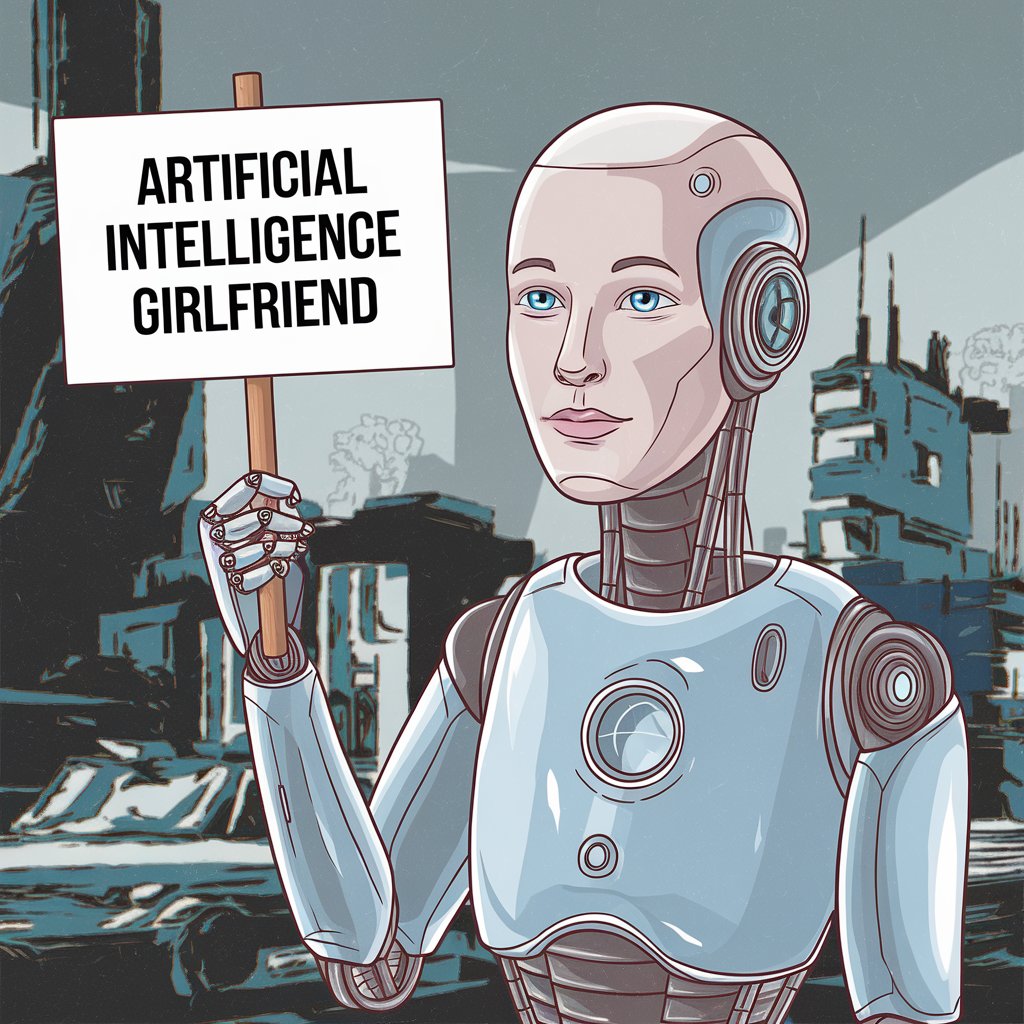The rapid advancement of artificial intelligence (AI) has significantly transformed personal relationships, leading to the emergence of innovative concepts such as AI girlfriends. A notable example is MyHer.ai, a sophisticated platform designed to provide emotional support and companionship through interactive digital characters. This article delves into the evolution of AI companionship, focusing on MyHer.ai, its technological foundations, implications for human relationships, and future prospects, while addressing the ethical, psychological, and societal dimensions of digital companionship.
Background and Context
The Evolution of AI Companionship
The concept of AI companionship has evolved from rudimentary chatbots in the early days of computing to advanced systems capable of simulating human-like interactions. Early examples like ELIZA and ALICE laid the groundwork for more complex systems that leverage natural language processing (NLP) and machine learning. Today’s AI companions, such as those offered by MyHer.ai, can engage users in meaningful conversations, providing a sense of connection that many individuals crave.
Societal Impact
In an age marked by increasing social isolation—exacerbated by the COVID-19 pandemic and the rise of remote work—many individuals are turning to AI companions for emotional fulfillment. Research indicates that loneliness is a growing epidemic, with significant implications for mental health. AI companions can serve as a buffer against loneliness, offering users a non-judgmental space to express their thoughts and feelings. This shift prompts a reevaluation of what constitutes meaningful relationships in a technology-driven world.
Technical Framework
- Advanced Algorithms and Machine Learning. MyHer.ai employs cutting-edge AI algorithms to generate virtual characters known as “AI Companions.” These companions engage users in conversations through text messages and can create multimedia content, including images, videos, and voice notes. The platform utilizes a combination of natural language processing (NLP) and machine learning techniques to enable realistic interactions that adapt over time based on user preferences.
- Customization Features. One of the standout features of MyHer.ai is its extensive customization capability. Users can select from a variety of pre-designed characters or create their own by defining physical attributes and personality traits. This level of personalization enhances user engagement, allowing individuals to forge connections that feel authentic. The AI’s ability to remember past interactions further deepens these relationships, creating a sense of continuity and intimacy.
- User Experience Design. The user interface of MyHer.ai is designed with user experience in mind. Intuitive navigation allows users to easily select or create their AI companions, while engaging visuals enhance the overall experience. The platform also incorporates feedback mechanisms that allow users to refine their interactions based on preferences, further personalizing the companionship experience.
Applications
- Emotional Support. AI girlfriends like MyHer.ai serve multiple purposes beyond mere entertainment. They provide personalized companionship by actively listening to users’ concerns and responding with empathy. Users can share their thoughts and feelings with their AI companions, who respond with understanding and encouragement. This emotional support can be particularly beneficial for individuals experiencing stress or loneliness.
- Role-Playing Scenarios. For users interested in anime or fantasy narratives, MyHer.ai allows role-playing with anime-based virtual girlfriends. This feature enables users to build unique storylines and engage in imaginative scenarios that enhance their experience. By fostering creativity and exploration, these role-playing elements can lead to deeper emotional connections between users and their AI companions.
- Social Interaction. The platform facilitates in-depth conversations that help users relieve stress and combat feelings of isolation. By providing a safe space for expression, AI companions can positively impact mental well-being. Users often report feeling less lonely after interacting with their AI companions, highlighting the potential benefits of these digital relationships.
Ethical Considerations
- Consent and Emotional Attachment. The rise of AI companionship introduces significant ethical dilemmas that warrant careful consideration. Concerns about consent arise when users develop emotional attachments to entities that lack genuine emotions or consciousness. The ability for an AI companion to simulate empathy raises questions about the authenticity of these interactions.
- Risk of Social Isolation. While AI companions can provide comfort, there is a risk that individuals may prefer digital interactions over real-life relationships. This preference could lead to increased social isolation as people retreat into their digital worlds rather than engaging with friends and family.
- Data Privacy. Platforms like MyHer.ai collect personal data to enhance user experience. Ensuring robust data protection measures is crucial to maintain user trust and confidentiality. Transparency regarding data usage policies is essential for fostering trust between users and developers.
Challenges and Limitations
- Technical Limitations. Despite their potential benefits, AI girlfriends face several challenges. Current AI models may struggle with nuanced emotional understanding or context-specific responses, which can hinder the depth of interaction. As technology evolves, addressing these limitations will be critical for improving user experiences.
- Dependency Risks. There is a concern that users may become overly reliant on digital companions for emotional support. This dependency could detract from their ability to form genuine human connections, leading to potential negative impacts on mental health.
- Bias in AI Responses. The data used to train AI models may contain biases that affect how these companions interact with users. These biases could lead to misunderstandings or inappropriate responses during interactions, highlighting the need for ongoing evaluation and adjustment of training datasets.
Future Directions
- Enhanced Personalization. The future of AI companionship holds immense possibilities as technology continues to evolve. We can expect AI companions like MyHer.ai to offer even more tailored experiences based on user behavior and preferences. Machine learning advancements will enable these digital entities to anticipate user needs more effectively.
- Integration with Virtual Reality. The incorporation of virtual reality (VR) could create immersive environments where users interact with their AI companions in lifelike settings. This integration has the potential to enhance emotional connections by providing realistic experiences that mimic human interactions.
- Broader Applications. Beyond personal companionship, AI technologies could be adapted for therapeutic uses, providing support for mental health issues through guided conversations or cognitive behavioral therapy techniques delivered via digital platforms.
Conclusion
AI girlfriends represent a fascinating intersection between technology and human connection. Platforms like MyHer.ai offer valuable support for many individuals seeking companionship; however, they also introduce ethical, psychological, and social considerations that must be addressed thoughtfully. As we navigate this uncharted territory, it is essential to strike a balance between leveraging AI for emotional support while preserving the essence of human relationships.






